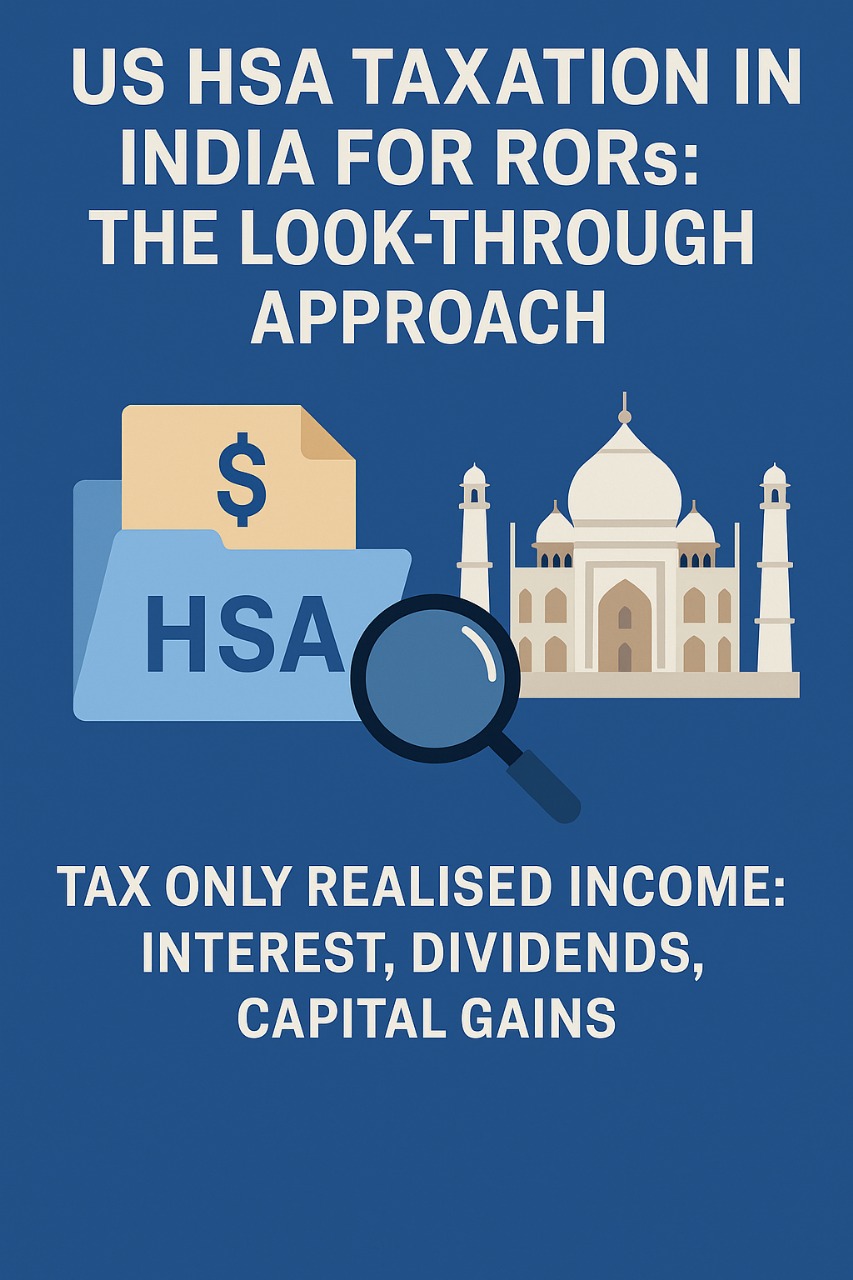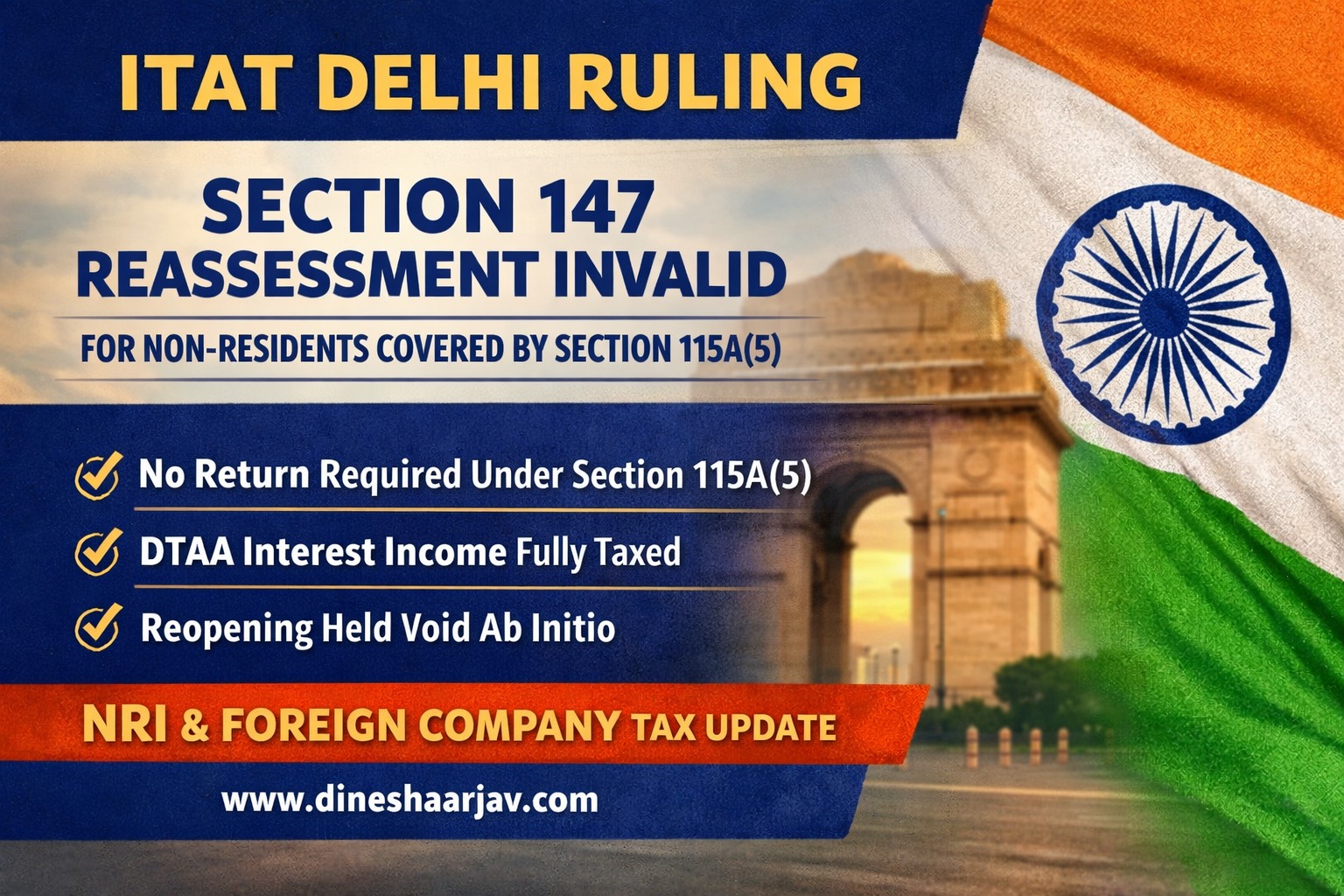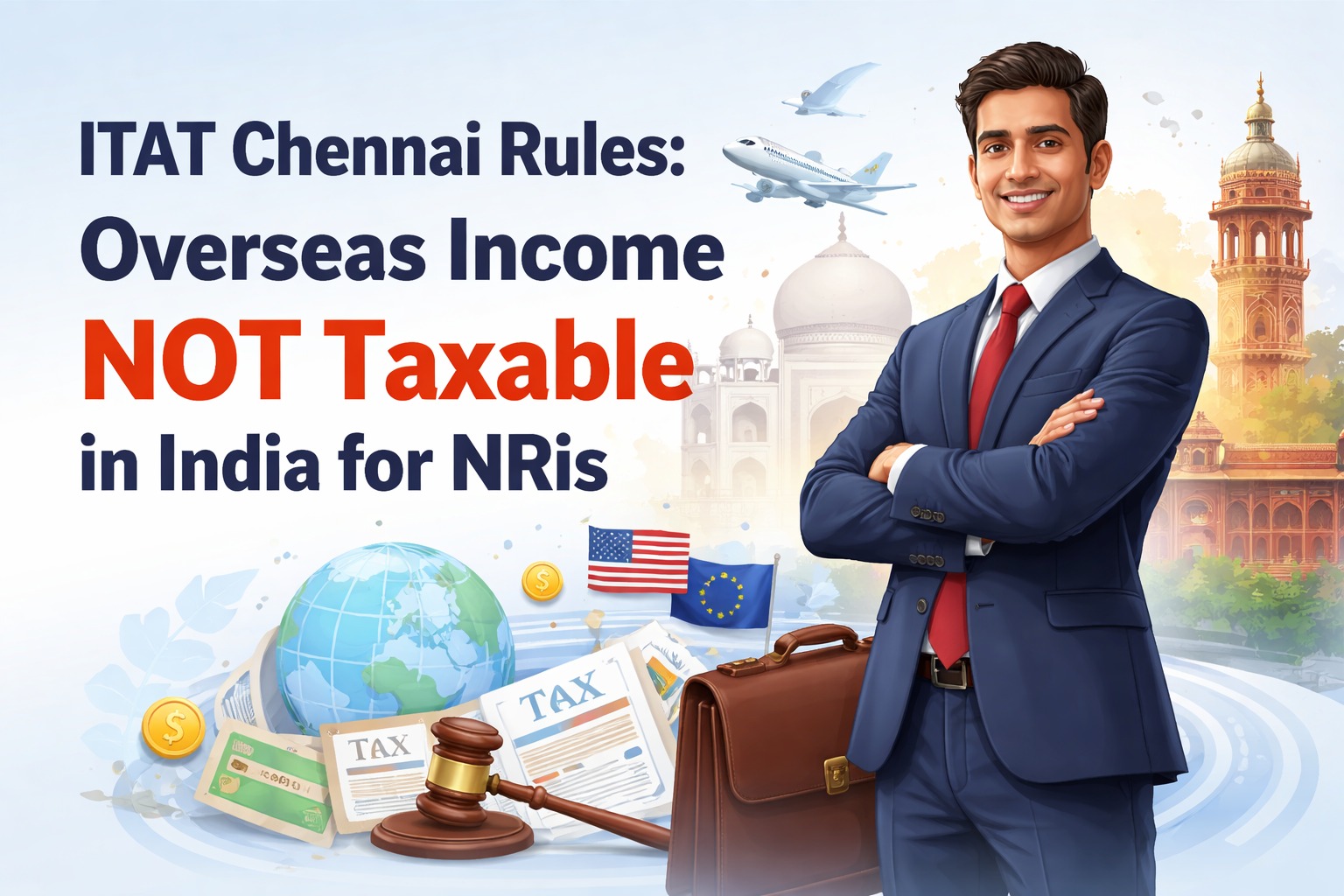 WhatsApp
WhatsApp
 Call Us
Call Us
 Email Us
Email Us
 Whatsapp Community
Whatsapp Community

A Health Savings Account (HSA) is a popular US-based medical savings and investment vehicle that offers a triple tax advantage — tax-deductible contributions, tax-free growth, and tax-free withdrawals for qualified medical expenses.
However, when an individual moves back to India and becomes a Resident and Ordinarily Resident (ROR), the HSA taxation in India becomes unclear.
Unlike the US, India does not recognise the HSA structure as a tax-advantaged account, creating uncertainty around whether the annual gains or the withdrawal are taxable.
In this article, we at Dinesh Aarjav & Associates explain the “look-through approach” to HSA taxation in India, which focuses on taxing only the realised income — not the entire withdrawal amount.
As with other foreign accounts and investment products, there is no judicial pronouncement, CBDT circular, or specific provision in the Indian Income Tax Act that defines how a US HSA should be taxed once the account holder becomes ROR.
This lack of clarity means that the issue is subject to tax interpretation and litigation risk.
Hence, understanding the conceptual tax treatment becomes critical for Indian residents holding an HSA.
From an Indian tax perspective, a Health Savings Account (HSA) is considered a foreign investment account, not a tax-exempt healthcare account.
Just as the United States does not recognise India’s PPF or EPF for tax exemption, India likewise does not recognise the US HSA as a tax-advantaged wrapper.
Therefore, once you become a Resident and Ordinarily Resident, the Indian tax authorities will “look through” the HSA structure and focus on the underlying income components, not the wrapper itself.
Under the look-through approach, the Indian Income Tax law disregards the “wrapper” of the HSA and taxes the actual income earned inside the account based on its nature:
| Type of Income in HSA | Indian Tax Treatment |
| Interest income | Taxable as Income from Other Sources |
| Dividends from US securities | Taxable as Income from Other Sources (foreign income) |
| Realised capital gains (sale/redemption) | Taxable as Capital Gains under Indian law |
| Unrealised appreciation | Not taxable until realised |
| Withdrawals for medical expenses | Not taxable again if underlying income already taxed |
This approach ensures that India taxes income, not capital, aligning with core principles of the Indian Income Tax Act.
India’s tax jurisdiction applies to income earned or accrued, not the return of capital.
There is no provision in the Income Tax Act, 1961 that authorises the taxation of the entire HSA corpus unless the amount represents untaxed income.
Therefore, once the interest, dividends, and capital gains generated inside the HSA have been appropriately reported and taxed, any subsequent withdrawal — whether for medical or personal purposes — should not trigger additional tax in India.
This interpretation also avoids double taxation, which aligns with fair-tax principles and cross-border consistency, and reflects the practical position adopted in DTAA Consultancy.
Every Resident and Ordinarily Resident in India must report their foreign financial assets in Schedule FA (Foreign Assets) while filing the Indian Income Tax Return (ITR).
Your HSA account should be disclosed under the category of “Foreign Custodial Accounts” or “Foreign Investment Accounts”, depending on its format and custodian.
Proper disclosure helps avoid penalties under Section 43 of the Black Money (Undisclosed Foreign Income and Assets) and Imposition of Tax Act, 2015.
Since HSA taxation in India lacks official guidance, taxpayers should maintain:
Maintaining such evidence helps establish that all underlying income has been reported in India, minimizing future litigation risk.
The US Health Savings Account (HSA) is not a tax-recognised structure under Indian law.
Therefore, India should look through the HSA and tax only the realised income, such as interest, dividends, and capital gains, in the year they are earned or received.
Taxing the entire withdrawal amount would contradict the principle that India taxes income, not capital, and would lead to double taxation.
Until a CBDT clarification or judicial ruling provides explicit direction, Indian residents with US HSAs should:







Stay in the loop, subscribe to our newsletter and unlock a world of exclusive updates, insights, and offers delivered straight to your inbox.